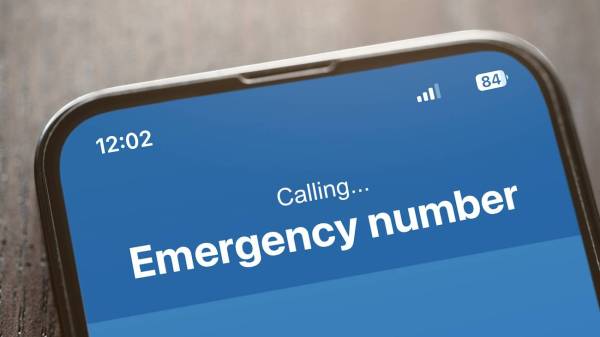Why 911’s ‘tragic’ shortcomings need immediate attention

Despite the need for lawmakers to provide emergency relief during COVID-19 pandemic, they must not allow the health crisis to overshadow needs for overdue updates to the country’s aged 911 infrastructure, Brian Fontes, chief executive of the National Emergency Number Association, warned on Wednesday.
Fontes, whose organization earlier this year conducted surveys of the nation’s public safety answering points, or PSAPs, to better understand how the health crisis is affecting the ability of those call centers to function, said that while he supports the need for additional pandemic relief from Congress, he’s concerned lawmakers will wrap up their current session without addressing the 911 system’s needs.
“I think it’s tragic, absolutely tragic, when the link between the consuming public, all those millions of people with those smartphone devices, and [the public safety communications network] FirstNet, which Congress made reality and is capable of having the same capabilities as the public, but having to have that information dummied down to either voice or voice and text,” Fontes said during an online conference hosted by the public-safety consulting firm Mission Critical Partners.
Among the chief concerns facing 911 services in the U.S. today, Fontes said, is the need for Congress to pass a bill supplying $9 billion to $12 billion for a nationwide upgrade to next-generation 911, digital upgrades that allow PSAPs and their communications networks to share videos and photos and seamlessly transfer caller data across jurisdictions. With 80 percent of 911 callers using smartphones, Fontes said, it doesn’t make sense to continue using outdated, analog technology.
There’s bipartisan legislation in both houses, but Fontes said he’s unsure the measures will receive attention this session as lawmakers focus on the pandemic and as factions within the public safety industry joust for minor advantages.
“My interest in this legislation is simply ensuring that money is available to move next-generation 911 nationwide because that money for those next-generation 911 systems will result in better service to the American public,” he said. “And that is who we all serve.”
Despite a decrease in crime during the pandemic, added stresses of the crisis have taken a toll on 911 systems. NENA’s surveys revealed that some PSAPs have been forced to delay maintenance — and possibly security upgrades — to systems that are already decades out of date. Many PSAPs are preparing for spending freezes and struggling to adequately staff their facilities. Some PSAP operators have failed to receive access to the same COVID-19 testing and personal protective equipment as other first responders.
Another long overdue reform, Fontes said, is for the Bureau of Labor Statistics to change its classification of 911 operators from administrative workers to first responders. The Department of Homeland Security deemed 911 an essential service during the pandemic, yet the workers who ensure 911 stays operational are reporting difficulty getting enough cleaning equipment and delays in receiving COVID-19 testing results because of how the Labor Department currently categorizes them, Fontes said.
“We simply have to ensure that as essential personnel, 911 professionals have the same forms and treatments and access to testing and equipment as anyone else in the public safety response chain,” Fontes said.






